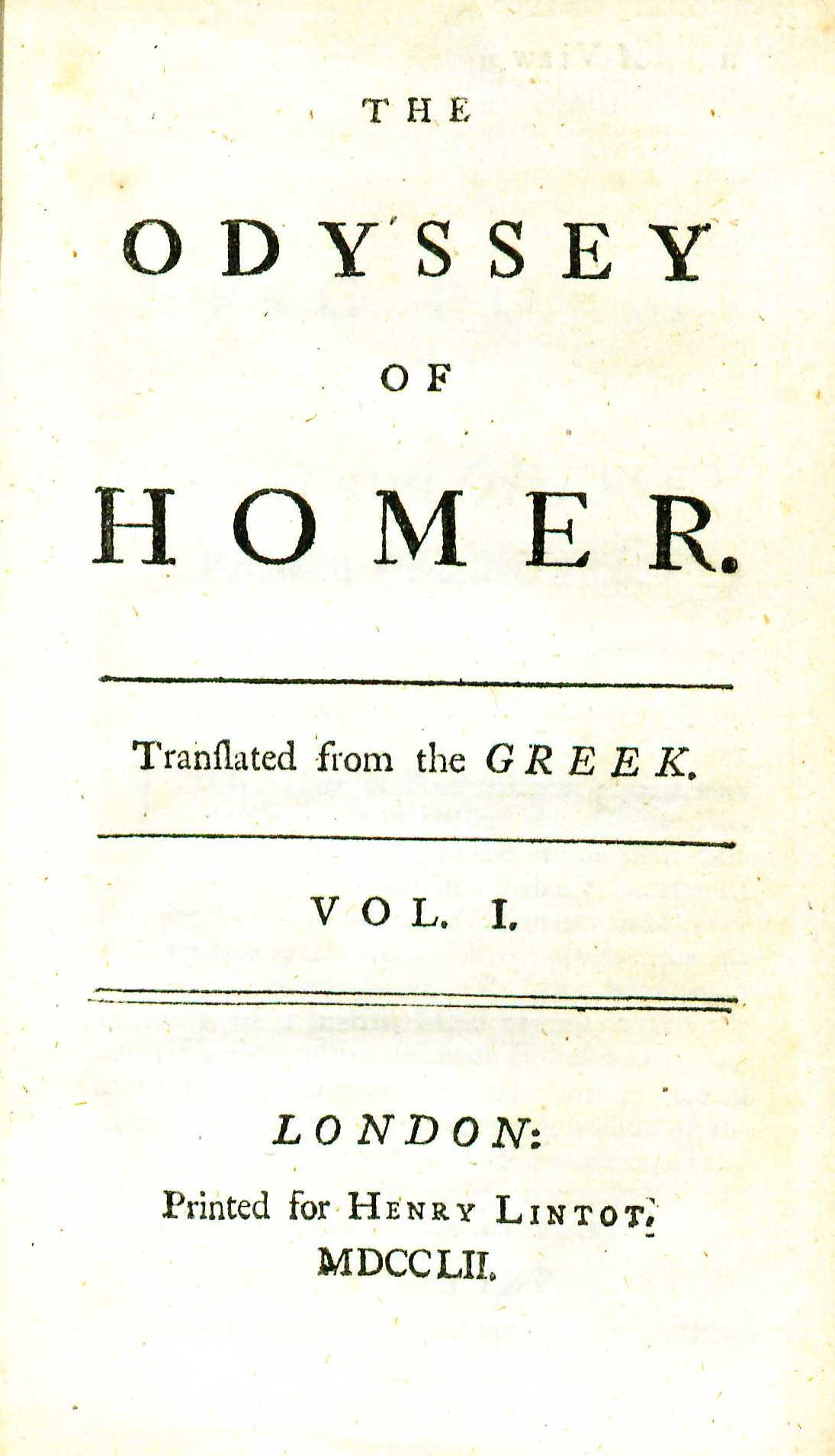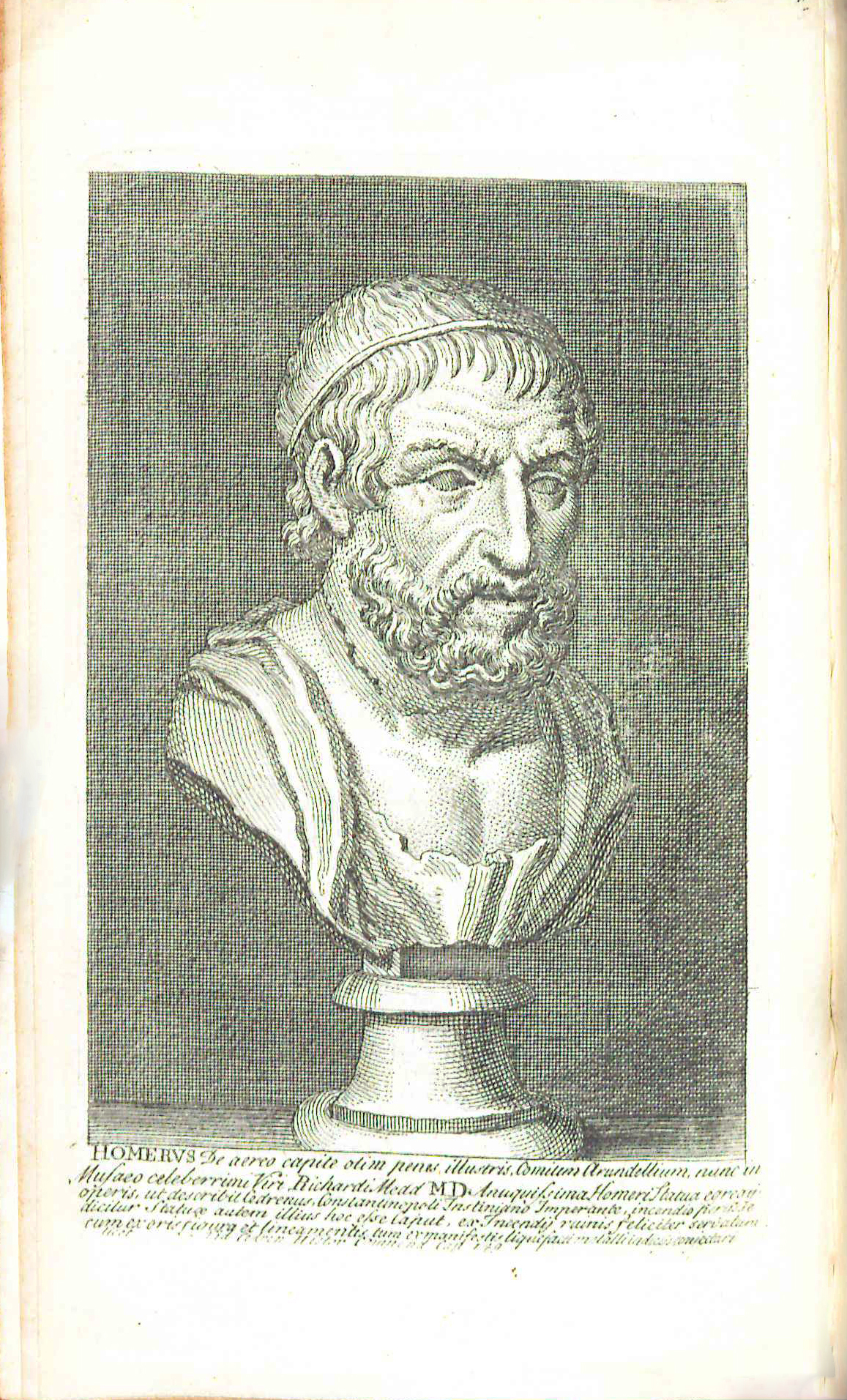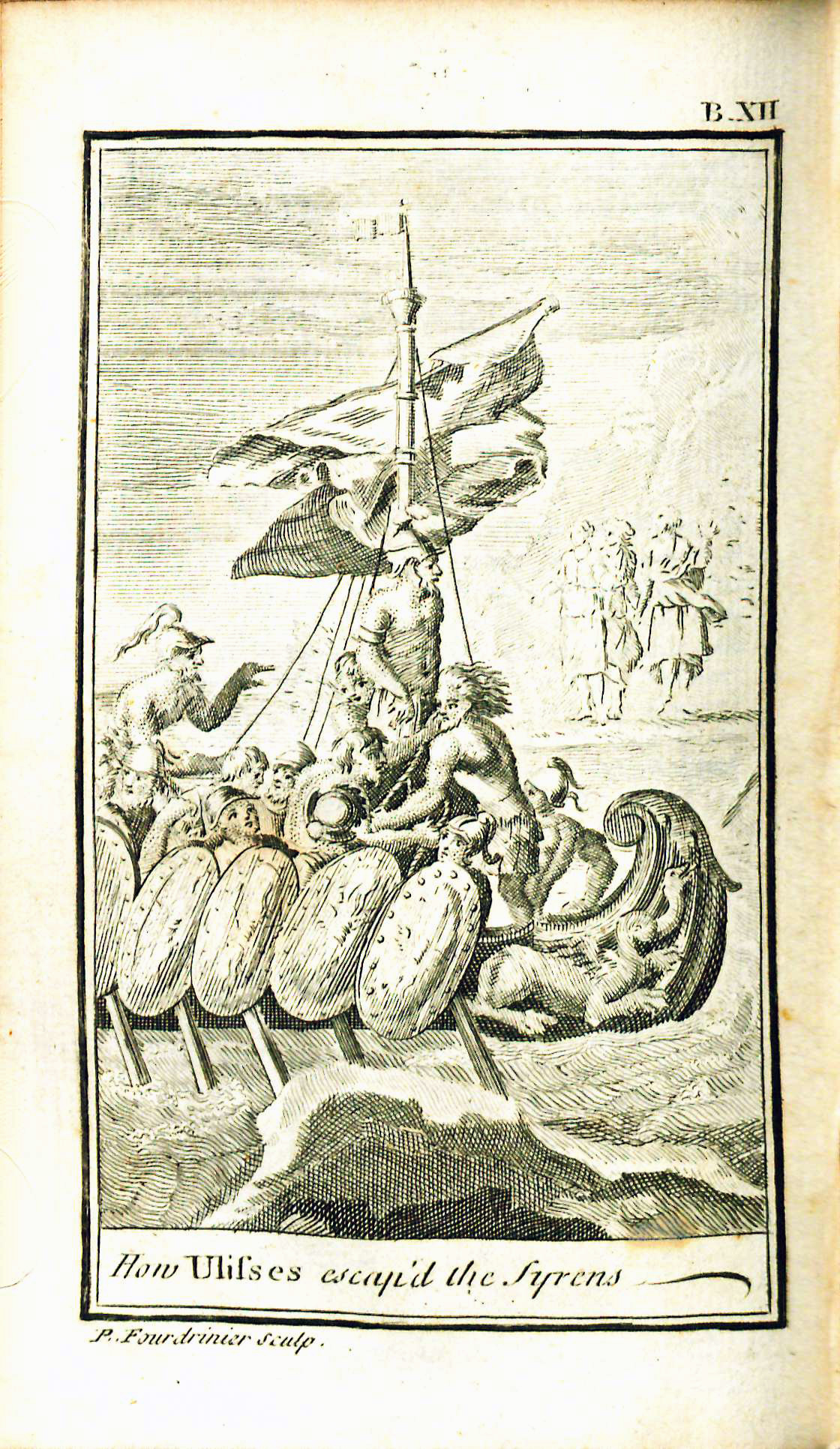Difference between revisions of "Odyssey of Homer"
(→Description of the Wolf Law Library's copy) |
|||
| Line 23: | Line 23: | ||
==Description of the Wolf Law Library's copy== | ==Description of the Wolf Law Library's copy== | ||
| − | Bound in | + | Bound in full leather with gilt-ruled boards, five raised bands and gilt to spine. Purchased from Abbey Antiquarian Books. |
View this book in [https://catalog.swem.wm.edu/law/Record/3474032 William & Mary's online catalog.] | View this book in [https://catalog.swem.wm.edu/law/Record/3474032 William & Mary's online catalog.] | ||
Revision as of 09:40, 19 March 2014
by Homer
| The Odyssey of Homer | |
|
Title page from The Odyssey of Homer, volume one, George Wythe Collection, Wolf Law Library, College of William & Mary. | |
| Author | Homer |
| Translator | Henry Lintot |
| Published | London: Printed for Henry Lintot |
| Date | 1752 |
| Language | English |
| Volumes | 5 volume set |
| Desc. | 12 mo. (17 cm.) |
Homer’s Odyssey is an epic poem consisting of 24 books telling the story of the Trojan War hero Odysseus' ten-year journey trying to get home to his wife Penelope and son Telemachus in Ithaca, where Odysseus is king. This epic is distinct from the Iliad in that it is a more romantic than heroic/tragic poem. It is clear in the Odyssey who the “good” and “bad” characters are, and therefore with whom the readers (or more accurately the listeners, as it was intended to be recited orally) should emphathize. Odysseus is shown through much of Greek mythological writing as intelligent and crafty. He tricked Achilles into agreeing to join the Greeks against the Trojans, and tricked the Trojans with the giant wooden horse that helped to end the war. In the Odyssey, Odysseus' familial devotion and "eternal human quality[y] of resolution" contrast with the barbaric creatures he meets on his adventures, as well as with the suitors attempting to woo his wife.[2] Odysseus' humaneness served as a model to Greek men, just as Penelope’s devotion to her husband and home showed Greek women how to behave. The strong moral themes in the Odyssey in no way take away from the exciting adventures Odysseus encountered, from the Cyclopes to the Lotus Eaters to the Sirens, and to tricking and defeating Penelope’s suitors.
Evidence for Inclusion in Wythe's Library
Listed in the Jefferson Inventory of Wythe's Library twice as Pope’s Odyssey. 5.v. 12mo. and [Pope’s] Odyssey. 5.v. 12mo. Given by Thomas Jefferson to his granddaughters, Ann and Ellen Randolph. The precise edition of the set owned by Wythe is unknown. George Wythe's Library[3] on LibraryThing indicates as much, adding "Five-volume editions in duodecimo were published at London in 1725-26, 1745, 1752, and 1758." The Brown Bibliography[4] lists a 1752 edition published in London, translated by Alexander Pope, based on the copy Jefferson sold to the Library of Congress.[5] The Wolf Law Library followed Brown's recommendation and purchased a copy of the 1752 edition.
Description of the Wolf Law Library's copy
Bound in full leather with gilt-ruled boards, five raised bands and gilt to spine. Purchased from Abbey Antiquarian Books.
View this book in William & Mary's online catalog.
References
- ↑ "Homer” in The Oxford Companion to Classical Literature, ed. by M.C. Howatson (Oxford: Oxford University Press, 2011).
- ↑ "Homer" in Oxford Dictionary of the Classical World.
- ↑ LibraryThing, s. v. "Member: George Wythe," accessed on November 18, 2013, http://www.librarything.com/profile/GeorgeWythe
- ↑ Bennie Brown, "The Library of George Wythe of Williamsburg and Richmond," (unpublished manuscript, May, 2012) Microsoft Word file. Earlier edition available at: https://digitalarchive.wm.edu/handle/10288/13433
- ↑ E. Millicent Sowerby, Catalogue of the Library of Thomas Jefferson, 2nd ed. (Charlottesville: University Press of Virginia, 1983), 4:417 [no.4272].
External Links
Read volume three of this book in Google Books.


